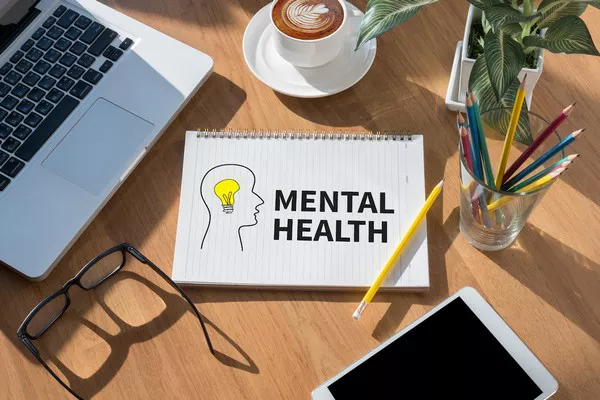Mental health problems encompass a wide range of conditions that affect a person’s thoughts, emotions, and behaviors. Understanding the various types of mental health problems is essential for recognizing and addressing these conditions in ourselves and others. In this article, we explore the diverse spectrum of mental health problems, ranging from mood disorders to anxiety disorders, psychotic disorders, personality disorders, and more. By shedding light on these different categories, we aim to promote awareness, reduce stigma, and encourage individuals to seek appropriate help and support for their mental well-being.
Mood Disorders
a. Depression: Depression is characterized by persistent sadness, loss of interest or pleasure in activities, changes in appetite and sleep patterns, and feelings of hopelessness or worthlessness. It can significantly impact daily functioning and quality of life.
b. Bipolar Disorder: Bipolar disorder involves alternating episodes of depression and mania. Manic episodes are characterized by elevated mood, increased energy, impulsivity, and erratic behavior.
Anxiety Disorders
a. Generalized Anxiety Disorder (GAD): GAD is marked by excessive worry and anxiety about various aspects of life, including everyday situations. Physical symptoms such as restlessness, irritability, muscle tension, and sleep disturbances often accompany GAD.
b. Panic Disorder: Panic disorder is characterized by recurrent, unexpected panic attacks that are accompanied by intense physical and psychological symptoms, such as a racing heart, shortness of breath, chest pain, and a fear of losing control.
c. Social Anxiety Disorder: Social anxiety disorder involves an intense fear of social situations and a strong desire to avoid them. It can cause significant distress and impair one’s ability to form and maintain relationships.
Psychotic Disorders
a. Schizophrenia: Schizophrenia is a chronic and severe mental disorder characterized by disturbances in thinking, perception, emotions, and behavior. It often involves hallucinations, delusions, disorganized speech, and impaired social functioning.
b. Delusional Disorder: Delusional disorder is characterized by the presence of fixed, false beliefs (delusions) that are not influenced by rational arguments or evidence. These delusions often center around a specific theme, such as persecution or grandeur.
Personality Disorders
a. Borderline Personality Disorder (BPD): BPD is characterized by instability in relationships, emotions, self-image, and impulsive behaviors. Individuals with BPD may experience intense fear of abandonment, engage in self-harming behaviors, and have difficulty regulating their emotions.
b. Antisocial Personality Disorder (ASPD): ASPD is characterized by a disregard for others’ rights, lack of empathy, and a tendency to engage in manipulative or harmful behavior. Individuals with ASPD often display a pattern of violating societal norms and engaging in criminal activities.
Eating Disorders
a. Anorexia Nervosa: Anorexia nervosa is characterized by an intense fear of gaining weight, distorted body image, and self-starvation. It often leads to severe weight loss, nutritional deficiencies, and serious physical health complications.
b. Bulimia Nervosa: Bulimia nervosa involves episodes of binge eating followed by compensatory behaviors such as self-induced vomiting, excessive exercise, or the misuse of laxatives. It can lead to an unhealthy cycle of bingeing and purging.
c. Binge Eating Disorder: Binge eating disorder is characterized by recurrent episodes of consuming large quantities of food in a short period, accompanied by a feeling of loss of control. Unlike bulimia nervosa, there are no compensatory behaviors.
Substance Use Disorders
a. Substance Dependence: Substance dependence, often referred to as addiction, involves a pattern of compulsive drug or alcohol use despite adverse consequences. It leads to physical and psychological dependence on the substance.
b. Substance Abuse: Substance abuse refers to the harmful or hazardous use of substances that can lead to negative consequences but may not meet the criteria for substance dependence.
Obsessive-Compulsive and Related Disorders
a. Obsessive-Compulsive Disorder (OCD): OCD is characterized by the presence of obsessions (intrusive, distressing thoughts) and compulsions (repetitive behaviors or mental acts performed to alleviate anxiety). These obsessions and compulsions significantly interfere with daily life.
b. Hoarding Disorder: Hoarding disorder involves persistent difficulty parting with possessions, regardless of their value. It results in excessive accumulation of items, leading to cluttered living spaces and impaired functioning.
Trauma and Stressor-Related Disorders
a. Post-Traumatic Stress Disorder (PTSD): PTSD occurs following exposure to a traumatic event and is characterized by intrusive memories, flashbacks, hypervigilance, and avoidance of stimuli associated with the traumatic experience.
b. Acute Stress Disorder: Acute stress disorder is similar to PTSD but occurs within a month of the traumatic event and typically resolves within that time frame. Symptoms include dissociation, intrusive thoughts, and avoidance.
Conclusion
The spectrum of mental health problems encompasses a wide range of conditions that can significantly impact an individual’s thoughts, emotions, and behaviors. By understanding the different types of mental health problems, we can foster greater awareness, reduce stigma, and promote a more compassionate approach to mental health. It is important to remember that mental health problems are treatable, and seeking appropriate help from mental health professionals is essential for recovery and well-being. By encouraging open conversations and providing support, we can contribute to a society that values and prioritizes mental health for all individuals.


